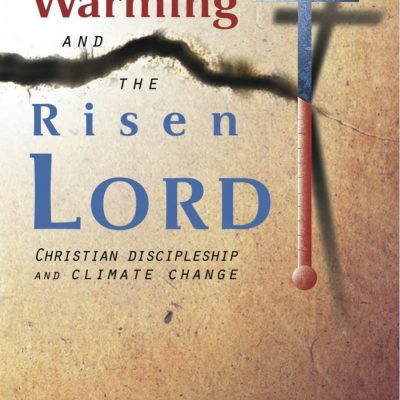A gripping center point in this book is the statement “Overcoming global warming is a spiritual challenge.” Such a statement is rare in most conversations about climate change and environmental degradation. Skeptics in society – as well as in the evangelical Christian community – often dismiss the evidence of global warming and overlook the idea that the condition of the soul is at the core of the cause and thinking about the issue. Jim Ball tackles this concept head-on in his writing.
This book is a valuable resource for leaders and laypeople that want to gain understanding of a topic that is regularly in the news, in political debates, and in daily conversations. Dr. Ball develops a logical framework for the reader, which can be studied in a sequential reading of the book or used as a resource by selecting individual chapters to inform conversations. The three sections of the book intersect with each other in a remarkable fashion. As a reader, I appreciated the careful outline and description of the realities of climate change in the first section. A strength of the book’s argument comes from the author’s carefully footnoted statements about climate change that are based on the best scientific sources. Illustrations of the impacts of climate change are inserted graphically through out the book. I believe that someone who reads the book carefully will either be convinced of the reality of climate change or will recognized what they already believed about the issue has been articulated in a helpful manner for increased understanding.
The middle section of the book is strategically and artfully placed between the description of the climate change issue and the last section dealing with responsive actions. Jim carefully leads the reader through a thorough biblical study of who the Risen Lord is and who we are in relation to the Creator, Sustainer and Redeemer. I am grateful for the way’s that Jim lifts up the teachings of Christ as a clear and crucial guide for how we must act in our daily lives – and in particular in response to the daunting challenges of climate change.
Chapter 10 is a very powerful account of Dr. Ball’s personal experience with Christ in a youth and on into his life’s work. It is here that the reader discovers why Jim is so passionate about the poor of the world and the why Christians need to act. It is gripping to read of the events of his hometown as he was growing up as a child. He shares the tensions of the civil rights issues, as well as the ways that the church failed to lead or act on the injustices that surrounded them in daily life. Jim makes it clear that the injustices of climate change are areas where Christians must act today and that we should learn from the failures of our inactions in the past. The case is articulated well, with passion, and with inspiration. The church must act and not deny.
A critical theme that runs throughout the book is that of the poor and our responsibility to take action. This point is made with regional and global statistics as well as with a biblical context. I am impressed with how Dr. Ball articulates that the Risen Lord demonstrated His love for the poor and disadvantaged – and calls His followers to walk in His steps. As Christians, we have often fallen into an individually focused view of who Christ is. Jim doesn’t allow us to be in that mode of operation. As he says, “Christ… afflicts the comfortable.” Christians of the 21st Century must act on Christ’s teachings, which also means leading in response to global warming.
The final section of the book is filled with realistic and credible responses to climate change. The reader is not left with a feeling of hopelessness, but rather the awareness that there are practices that will make a difference and must be pursued now. I found the concepts of mitigation, poverty-reduction and adaptation to be grounded in good practice and policy. As Dr. Ball notes, we must have a moral and political will to act, secure funding, provide good governance, right policies, accurate i
